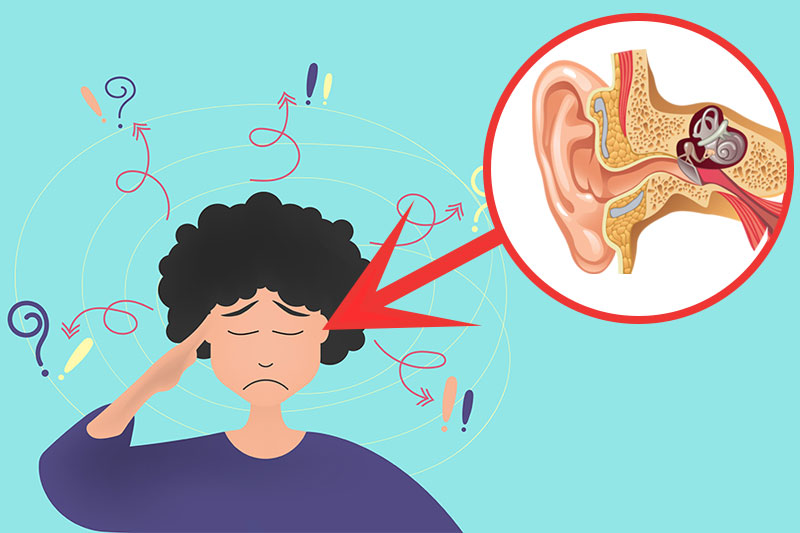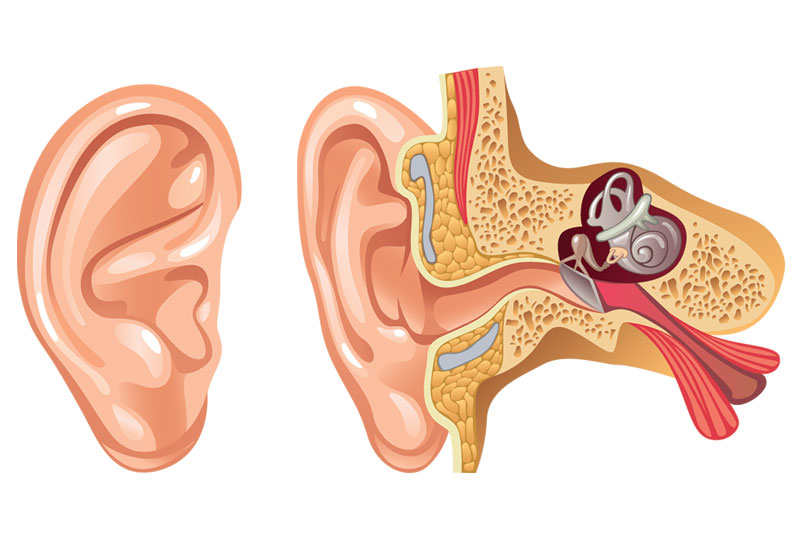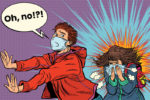While vertigo is the less common of the two, dizziness is something that we all will experience or have experienced at some point in our lives. However, that doesn’t mean that vertigo isn’t at all common.

In fact, it is estimated that nearly 40 percent of all American adults will experience at least one instance of vertigo or vertigo-like phenomenon. Vertigo, which is loosely defined as an illusion of motion, is actually a specific type of dizziness you can experience. If you’ve ever felt as if you’re moving––or the world is moving––even when you and your environment are not actually moving, then you’ve had an instance of vertigo.
Again, vertigo is actually more common than you think. It’s something that nearly half of us will experience at some point in our lives. But what causes this vertigo and/or sudden dizziness? Let’s take a look at 10 reasons for sudden dizziness and vertigo that you probably didn’t expect to learn about today.
#10 – Inner ear problems

They may not seem to be related in any way, but an inner ear issue can definitely cause an onset of dizziness or vertigo. Your inner ear contains sensing crystals called otoconia which, when dislodged, may cause you to experience a quick spinning sensation. This condition is called benign paroxysmal positional vertigo, or BPPV, and affects 1 out of 1,000 each year.
#9 – Vitamin B12 deficiency

Being deficient in vitamin B12, an essential vitamin can lead to a variety of neurological problems, including low blood pressure, decreased blood flow, and feeling off-balance. You can easily boost your vitamin B12 levels by eating meat or dairy products.
#8 – Heart disease

In many cases, feeling dizzy can be a result of sudden movement. But in more serious cases, dizziness may be caused by an underlying heart issue. When you suffer from arrhythmia or narrow heart valves, blood flow to the brain may be reduced, resulting in dizziness.
#7 – Migraines
Dizziness can be caused by migraine disease, which is a bit of a surprise. When a migraine is especially severe, you may experience sensitivity to motion, sound, and light, as well as vertigo or dizziness.
#6 – Anxiety

Studies show that there is a connection between sudden dizziness and anxiety, especially when it comes to people in their twenties. Basically, people with anxiety tend to sway more when placed in a moving visual environment. They may also experience increased dizziness when walking through a large and bright store.
#5 – Boat ride or waterbed

This one is more obvious than the rest, but being on a boat ride or laying on a waterbed can cause you to feel dizzy or even experience vertigo. Called mal de debarquement, this feeling can, unfortunately, last for months or years.
#4 – Certain medication

Another common cause of dizziness or even vertigo is certain medications. Especially for blood pressure medication, taking a higher dose of medicine can lead to dizziness. Older adults and those who are more sensitive to medication are more likely to experience this.
#3 – Dehydration

When you’re dehydrated, your body is desperately in need of water. By depriving your body of the water it demands, you may experience dizziness, vertigo, and even hallucinations.
#2 – Lack of sleep

Being excessively sleep deprived can cause dizziness and vertigo in extreme cases. If you go several days with little to no sleep, your brain doesn’t function nearly as optimally as it should, and thus may have a harder time keeping you “in balance”. Add this to the fact that you’re tired and disoriented, and it’s easy to see how lack of sleep can cause dizziness.
#1 – Excessive secondhand smoke

It’s no secret that secondhand smoke is bad for you, worse than actually smoking itself. But did you know that being around secondhand smoke can actually cause you to feel dizzy and disoriented as well? According to several studies, secondhand smoke can cause you to feel dizzy due to the range of harmful chemicals it contains.


